Between the publication of my first book, Bronx DA: True Stories from the Sex Crimes and Domestic Violence Unit, and my second, ReInception, the book promotion landscape changed significantly. Also, my first book was non-fiction and about crime—a much easier sell than fiction and one that lent itself to different promotion, such as my work as a talking head on true crime shows and on the news.
In order to sell fiction and, specifically science fiction, I had to try new things. One of those things was entering awards!
I’ll admit, I went a little crazy—I didn’t know which awards were worth it and which might not be. Also, I wasn’t sure how ReInception would perform. I entered a lot of competitions—bad for my pocketbook, but good for you, because now I have a lot to share! In other good news, ReInception won a lot of awards—so many, in fact, that if I put all of the seals on the cover, there would be no room for anything else. So, was it worth it and which ones will I enter again? Read on to find out.
Because there is so much to discuss here, I will break this post into a few parts. I hope you find it helpful and please, if you’ve won awards that you think are noteworthy, for better or for worse, share in the comments!
Disclaimer:
I’m going to focus on what worked for me, which awards I found the most effective, and why. There were awards that I did not feel were worth the money or that seemed less merit-based and more like if you paid, you got one. I would not personally enter those awards competitions again. However, I’m not going to talk about those. For personal and professional reasons, I don’t like giving “bad reviews” in newsletters or social media. If there is an award that I have not listed here, either I didn’t know about it, I didn’t apply for it, or didn’t have a good experience with it. I’m happy to DM with you if you are interested in discussing an award that I’m not featuring! All of the awards on my cover photo are ones that I will discuss and recommend!
How To Find Book Awards Competitions
The easiest way to identify and locate Book Award Competitions is through “Book Award Pro.” (“BAP”) The way BAP works is you fill out a little survey and that helps match your book with relevant awards. The matching system is not perfect—you will definitely get matches that are not relevant to your book, but it’s good enough to reduce the volume to something manageable.
BAP sends weekly emails with your matches and also recommend sites where you can get book reviews. Once you have your matches, you can star or reject awards on the BAP site. You can also hone your criteria to improve your matches.
BAP offers four levels of membership. For free, you get matches based on the criteria that you give them, but that’s about it. Still, you can use that information to do your own sleuthing. From there, the membership has increasing functionality with everything from research and tracking features to a feature where they will actually submit for awards on your behalf, entry fee included in pricing.
I’ve tried free and paid memberships on BAP and also let them submit for a couple of awards on my behalf (a couple of which I won). My experience at all levels was positive, however, the recommendations are agnostic. Without further research, you won’t have a good sense of whether the award is really merit based or pay to play. At a minimum, especially as you are getting to know the awards available in your genre, I found membership that included expert research worth the money. It saved me a lot of time to have that synopsis, which helped me to quickly decide which awards to do a deeper dive on and which were a pass.
Book Publicist Westwind Communications also has a nice list of 40 largely reputable awards with a little blurb about why they matter: https://book-publicist.com/top-book-awards-for-authors/
How To Vet Awards Programs
Once you’ve identified some book awards that look promising, head on over to the Book Awards and Contest Ratings page (“BACR”) put together by the Alliance of Independent Authors. While not every award is covered, it’s pretty comprehensive. BACR’s criteria include that the judging is transparent, that the award is about talent and not enriching those who run the contest, and that receiving the reward is an achievement. Here is where you will find those awards that I’m not going to mention, (but they will)!
I used this site to vet awards that looked promising when recommended by BAP, but I also located some awards that BAP missed.
Let’s look at the Eric Hoffer Awards as an example (I was a 2023 Runner Up for this award). These awards are “Recommended” by BACR because of the clear guidelines and judging criteria. Also, judging is by nomination, which BACR prefers over anonymous judging. Additionally, the fees are reasonable.
I found the Wishing Shelf Awards via the BACA site (which I will comprehensively review in another part), but it’s been an absolute gem. They have an “excellent” rating, are author run, reader judged, have a very low entry fee and give many of the proceeds to charitable causes. I’m a finalist for two Wishing Shelf Awards, winners to be announced in April!
Which Awards Should I Apply For?
Okay, you’ve narrowed down your list to those awards that are both reputable and relevant, but you have a limited budget, which should you apply for? If there is an associated fee and you have a budget, you want to use it wisely to enter a contest that you have a chance of winning, that you can use to promote yourself, and that will also promote you.
Ask yourself:
What are my odds of winning?
What do I want to get out of it?
What Are My Odds of Winning?
Winning matters—that’s why you are entering the contest. I’m a traditionally published author, but with a small press, so an “Indie Author.” There are certain awards out there that we’d all love to win, but if you are not with a big press, your odds of winning will be low. I’m not saying don’t enter, but if there’s a fee and you are on a budget, consider how hard it will to compete with the big guys. There are lots of fantastic awards now that are designed for us Indie Authors that you might want to look to first. I will get into which awards those are in later posts!
Even if there isn’t a fee, for example, The Nebula Awards, getting nominated, trying to get people to vote for you, and voting for others can be a lot of work. If, like your budget, your time is limited, you might want to take that into account. If you look at the list of Nebula winners, you’ll mostly see publishers like Tor and Harper. That’s hard to compete with when you're a little guy. That said, I’ve met a lot of great people by joining SFWA and by being involved in the voting and nomination process. Those relationships have lead to other opportunities, like being on panels together. Always look at these opportunities holistically. Yes, the goal is to win, but winning is not the only thing you can get out of this process. Which brings me to….
What Do I Want To Get Out Of It?
Other than winning, of course, what do you want to get out of this process? The main answers are going to be promotion, networking, and opportunities. I did not win an Audie Award this year, but being a member of the Audie Publishers Association gave me the opportunity to judge the awards, which is a great way to give back, to learn more about the awards process, and to get to know some people in the industry.
Also, some awards have a live awards ceremony. Last year, I was a finalist for Best Audiobook, Fiction at the IBPA Benjamin Franklin Awards. I flew out to Washington to attend the IBPA conference and awards ceremony and we won! Not only did I learn a lot at the conference, I also participated in and won the Book to Film Pitch Competition. In the process, I met so many people from the industry and gathered a wealth of information and contacts. IBPA offers many opportunities for its winners to promote their books through their vast network of conferences, publications and media contacts. That, in turn, lead to a fantastic review from the highly regarded Midwest Book Review, which selected ReInception as a “Reviewer’s Choice” on the Sci-Fi/Fantasy shelf.
Some awards, such as Wishing Shelf and Literary Titan include feedback in their process. That feedback can be used for social media posts, book blurbs and sites like Amazon, or, if it’s critical, help you improve your writing so that you can win next time.
What’s Next?
Hopefully, you have found Part I of my series on book awards helpful! In Part II, I will start talking about some of the awards competitions I entered and why I recommend them. If there is anything in particular that I should cover in this series, please drop a note in the comments!
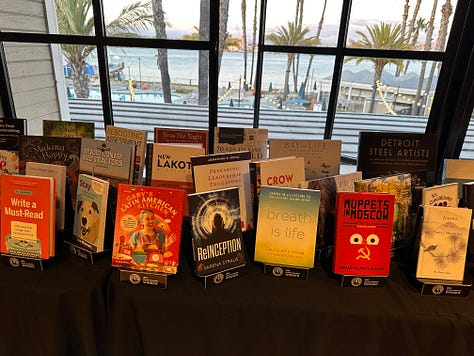
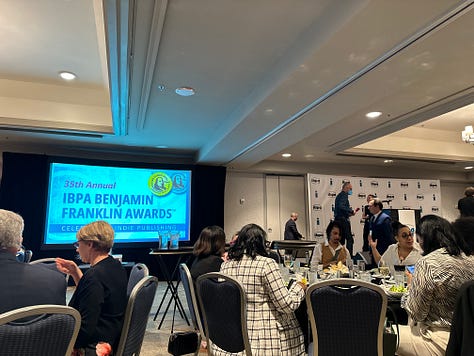

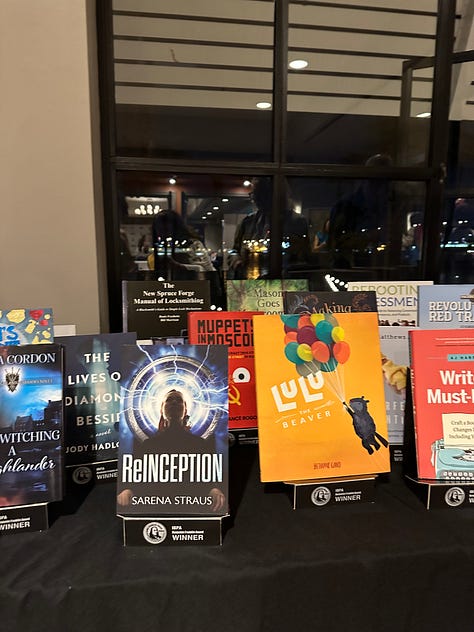
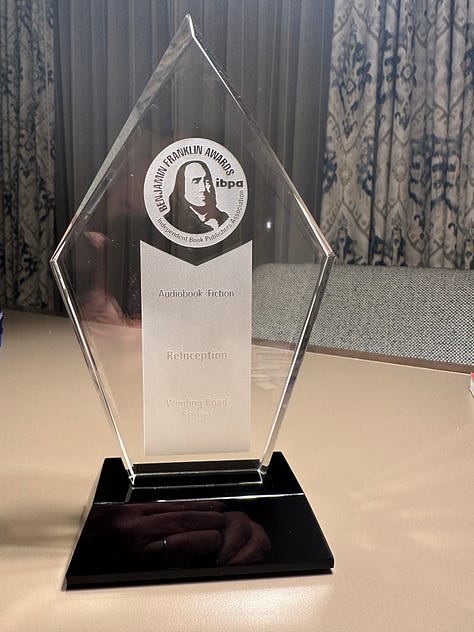
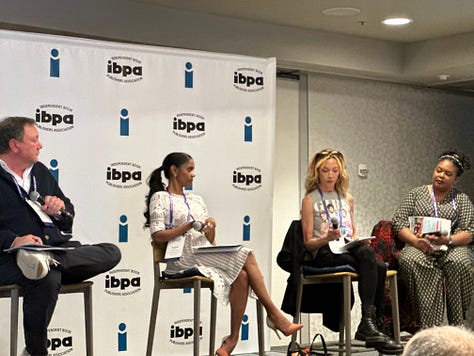


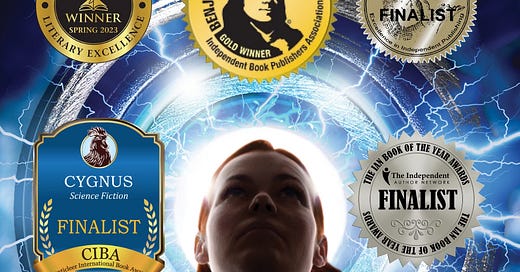



This is tremendously helpful! Thank you, Sarena. I've got awards on my ideas list for my next book and I actually had a note to talk to you about the various contests you've entered and your thoughts - so I'm making notes of what you're covering here! Much appreciated. ❤️